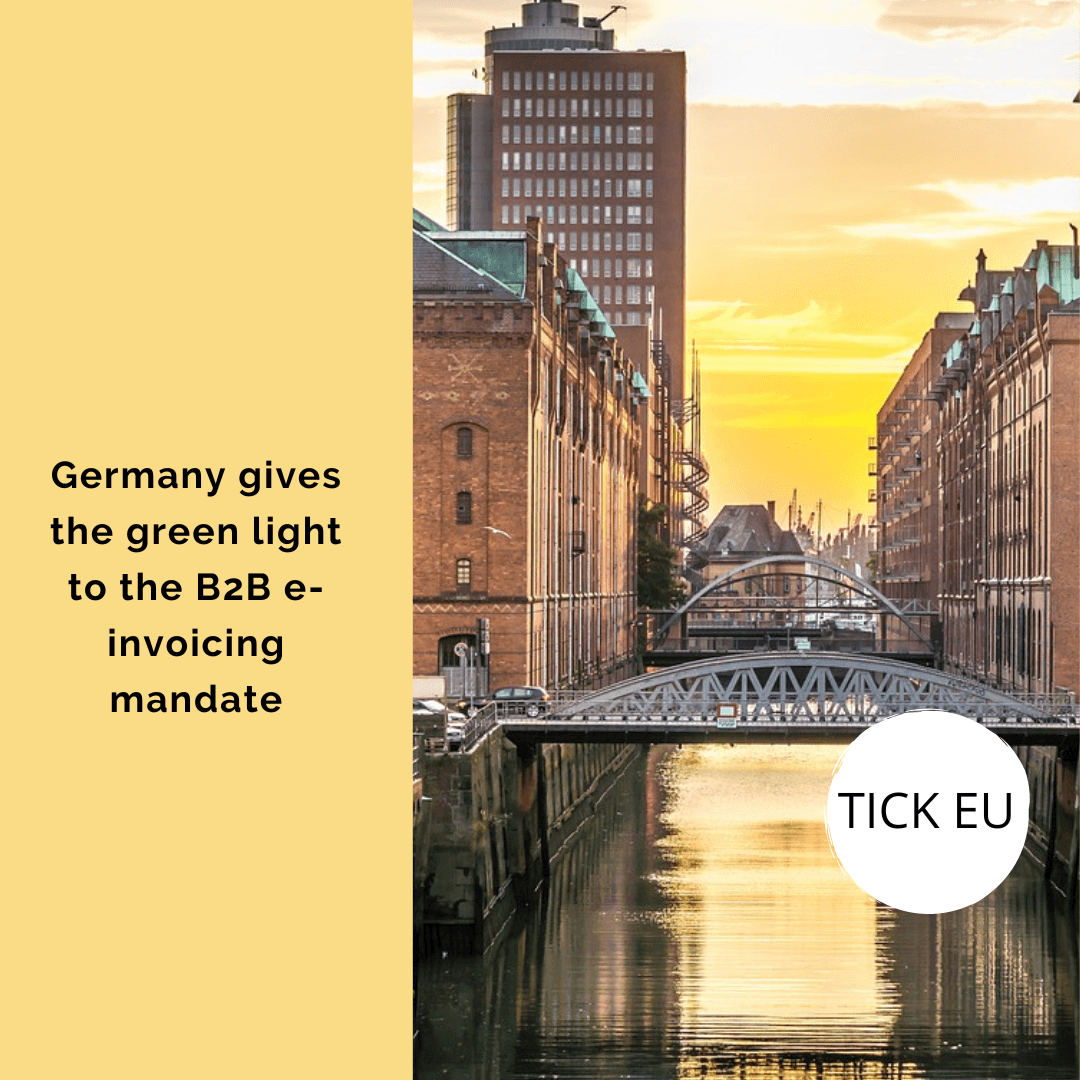On March 27th, 2024, the Bundesrat of Germany approved the Opportunities Development Act, introducing the obligation to use electronic invoices in business-to-business (B2B) transactions nationwide, with a planned implementation from 2025 to 2028.
Starting in 2025, electronic invoices will coexist with paper invoices as the primary format, with other formats accepted only with buyer consent. Gradually, all other invoice formats will be phased out by 2028, with only electronic format being accepted.
In contrast to other EU countries, such as France, Poland, or Spain, which recently announced plans for electronic invoicing, this law does not introduce any additional requirements for reporting data to tax authorities or choosing invoice transmission channels. It solely focuses on the invoice format, rendering paper invoices and simple PDF files obsolete in favor of electronic invoices. The text hints at the potential introduction of electronic reporting in the future.
Scope The Opportunities Development Act only applies to B2B transactions within the country. Transactions between businesses and consumers (B2C) are not covered by this law.
Additionally, currently exempt transactions from invoicing requirements will remain unaffected. This includes transactions below €250 (unless a customer requests an invoice), exempt supplies, and passenger transport. Foreign businesses registered solely for German VAT may also be exempt from this obligation.
Timeline The new law distinguishes between two types of invoices: electronic and “other.” It defines an electronic invoice as one issued, sent, and received in a structured electronic format enabling electronic processing and complying with the European standard (EN 16931) and its syntaxes.
Here are the timelines specified by the Opportunities Development Act:
- Currently: Paper invoices are the standard format. Sellers may send other formats, such as PDF, EDI, or electronic, with buyer consent.
- January 1st, 2025: Formats compliant with EN 16931 will become standard, replacing paper invoices. Companies may send EN 16931-compliant invoices without buyer consent. Other formats remain permissible with customer approval.
- January 1st, 2027: Companies with turnover exceeding €800,000 must use EN 16931-compliant electronic invoices. Paper or PDF invoices will no longer be permitted. The EDI exception remains, but only with customer agreement.
- January 1st, 2028: Companies with turnover below €800,000 must also use EN 16931-compliant electronic invoices and may not use paper or PDF invoices. The EDI exception is eliminated. Sellers may continue to use EDI – with customer agreement – but their implementation must comply with EN 16931 or at least be interoperable with it.
ZUGFeRD and X-Rechnung
Formats ZUGFeRD and X-Rechnung are two electronic invoice formats already in use in Germany, particularly in transactions between businesses and government authorities (B2G), where electronic invoicing is mandatory in certain states.
XRechnung is an XML document compliant with EU requirements. ZUGFeRD (Zentraler User Guide des Forum elektronische Rechnung Deutschland) is a hybrid format consisting of an A3 PDF file with embedded XML, meeting European standards. Both are based on and interoperable with UBL and CII.
The Federal Ministry of Finance has confirmed that both formats meet electronic invoice criteria. ZUGFeRD appears to be the primary candidate for Germany’s de facto invoice format as it combines a human-readable PDF with a machine-readable e-invoice.
The EDI Exception
The law defines an electronic invoice as one containing a UBL or CII file compatible with EN 16931, with an exception. If the invoice issuer and recipient agree to use a different structured format, it will be accepted as an electronic invoice as long as it enables extraction of all information required by EN 16931 or is interoperable.
This exception was primarily introduced to accommodate the Electronic Data Interchange (EDI) protocol, used by some sectors for years. Automotive, pharmaceutical, or logistics companies utilize EDI to electronically exchange orders, invoices, and other messages with customers and suppliers. Companies define their EDI implementation and can use different invoice syntaxes. EDIFACT is a widely used EDI invoice syntax.
These sectors already exchange millions of invoices in structured electronic formats, so immediately transitioning them to UBL or CII does not seem equitable. Consequently, the law permits companies to use any EDI invoices until 2028, regardless of EN 16931 compliance, with buyer and seller agreement.
This exception is eliminated from 2028, and EDI invoices must comply with EN 16931 or, if the buyer agrees, guarantee all required information and interoperability with it.


